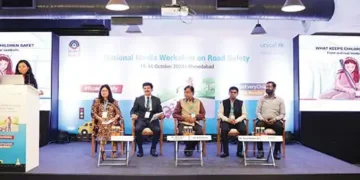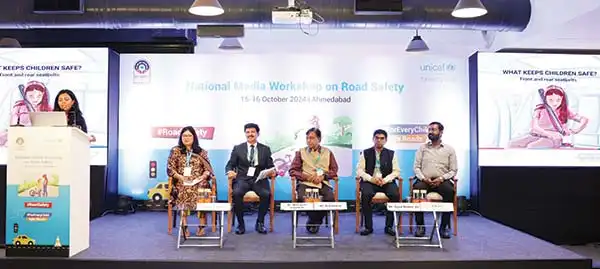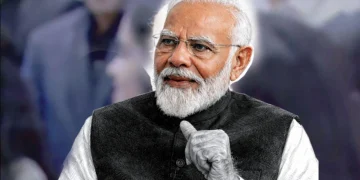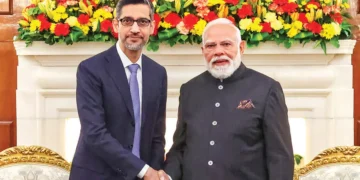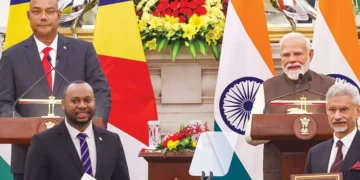Madhurendra Sinha
APPROXIMATELY 400 people in the country lose their lives on the roads every day, often before they can reach a hospital or trauma centre. This grim reality should be a national priority, yet it remains alarmingly overlooked.
Many of these tragic accidents are preventable. Experts identify overspeeding, human errors, mechanical failures, and general negligence as key contributors. Additionally, poorly maintained roads with potholes exacerbate the situation.
Notably, two-wheeler riders and their passengers are among the most vulnerable. A significant number of these fatalities stem from a lack of adherence to basic road safety measures, particularly the use of helmets.
Young riders are disproportionately affected and the irony is that many avoid wearing helmets, often citing flimsy excuses. This simple act of negligence can have fatal consequences.
Unicef workshop
To combat this crisis, Unicef recently organised a national media workshop on road safety in Ahmedabad, bringing together journalists, radio jockeys, and road safety experts to share insights on the subject.
Dr Syed Hubbe Ali from the UN body highlighted that while 75 per cent of people wear helmets, many do so merely to comply with regulations, and the quality of these helmets often fails to meet safety standards. He urged the importance of educating two-wheeler riders about ISI-certified helmets.
Parents also play a crucial role in ensuring that their children prioritise safety by wearing appropriate helmets and adhering to speed limits, he said. Dr G Gururaj from the World Health Organisation (WHO) emphasised the chaos created by the diverse array of vehicles on Indian roads, noting that the lack of reliable data hampers effective road safety solutions.
Despite numerous commissions formed by governments to address this issue, little progress has been made, he said, and pointed out that impulsive behaviour among youth contributes to road accidents, as they often disregard safety advice.
Hope is not lost
However, not all hope is lost. Various states are implementing initiatives to enhance road safety. Telangana and Gujarat, for instance, have made significant strides, including incorporating road safety education into school curricula. Telangana’s efforts have led to a remarkable 74 per cent reduction in road fatalities, showcasing the impact of awareness and education.
India has set a strategic goal to reduce road fatalities by 5 per cent by 2030. Achieving this target could save countless lives and help change the perception of India as a country with high road accident rates.
Awareness, education, and adherence to safety protocols are paramount in reducing road accidents. By prioritising these aspects and leveraging community initiatives, India can work toward a future with safer roads for everyone.
